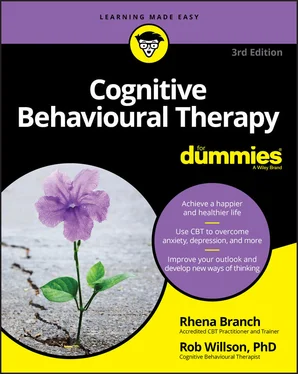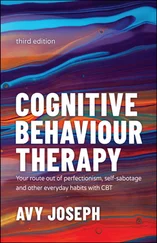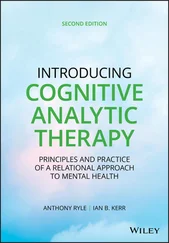A ( actual or activating event) = C (emotional and behavioural consequence )
CBT encourages you to understand that your thinking or beliefs lie between the event and your ultimate feelings and actions. Your thoughts, your beliefs and the meanings that you give to an event produce your emotional and behavioural responses.
So in CBT terms, your partner does not make you angry and sulky. Rather, your partner behaves inconsiderately, and you assign a meaning to her behaviour such as ‘She’s doing this deliberately to upset me, and she absolutely should not do this!’, thus making yourself angry and sulky. In the next formula, B stands for your beliefs about the event and the meanings you give to it.
A ( actual or activating event) + B ( beliefs and meanings about the event) = C (emotional and behavioural consequence )
This is the formula or equation that CBT uses to make sense of your emotional problems.
Emphasising the meanings you attach to events
The meaning you attach to any sort of event influences the emotional responses you have to that event. Positive events normally lead to positive feelings of happiness or excitement, whereas negative events typically lead to negative feelings like sadness or anxiety.
However, the meanings you attach to certain types of negative events may not be wholly accurate, realistic or helpful. Sometimes, your thinking may lead you to assign extreme meanings to events, leaving you feeling disturbed.
For instance, Tilda meets up with a nice man that she’s contacted via a dating app. She quite likes him on their first date and hopes he’ll contact her for a second meeting. Unfortunately, he doesn’t. After two weeks of eagerly checking her phone, Tilda gives up and becomes depressed. The fact that the chap failed to ask Tilda out again contributes to her feeling bad. But what really leads to her acute depressed feelings is the meaning she’s derived from his apparent rejection, namely, ‘This proves I’m old, unattractive, past it and unwanted. I’ll be a sad singleton for the rest of my life’.
As Tilda’s example shows, drawing extreme conclusions about yourself (and others and the world at large) based on singular experiences can turn a bad distressing situation into a deeply disturbing one.
 Psychologists use the word disturbed to describe emotional responses that are unhelpful and cause significant discomfort to you. In CBT terminology, disturbed means that an emotional or behavioural response is hindering rather than helping you to adapt and cope with a negative event.
Psychologists use the word disturbed to describe emotional responses that are unhelpful and cause significant discomfort to you. In CBT terminology, disturbed means that an emotional or behavioural response is hindering rather than helping you to adapt and cope with a negative event.
For example, if a potential girlfriend rejects you after the first date (event), you may think ‘This proves I’m unlikeable and undesirable’ (meaning) and feel depressed (emotion).
CBT involves identifying thoughts, beliefs and meanings that are activated when you’re feeling emotionally disturbed. If you assign less extreme, more helpful, more accurate meanings to negative events, you are likely to experience less extreme, less disturbing emotional and behavioural responses.
Thus, on being rejected after the first date (event), you could think ‘I guess that person didn’t like me that much; oh well – they’re not the one for me’ (meaning) and feel disappointment (emotion).
 You can help yourself to figure out whether or not the meanings you’re giving to a specific negative event are causing you disturbance by answering the following questions:
You can help yourself to figure out whether or not the meanings you’re giving to a specific negative event are causing you disturbance by answering the following questions:
Is the meaning I’m giving to this event unduly extreme? Am I taking a fairly simple event and deriving very harsh conclusions about myself (and/or others and/or the future) from it?
Am I drawing global conclusions from this singular event? Am I deciding that this one event defines me totally? Or that this specific situation indicates the course of my entire future?
Is the meaning I’m assigning to this event loaded against me? Does this meaning lead me to feel better or worse about myself? Is it spurring me on to further goal-directed action or leading me to give in and curl up?
CONSIDER THE REACTIONS OF TEN PEOPLE
Different people can attach different meanings to a specific situation, resulting in the potential for a vast array of emotional reactions to one situation. For example, consider ten basically similar people who experience the same event, which is having their partner treat them inconsiderately. Potentially, they can have ten (or maybe more) different emotional responses to precisely the same event, depending on how they think about the event:
Person 1 attaches the meaning ‘That idiot has no right to treat me badly – who the hell do they think they are’?, and feels angry.
Person 2 thinks, ‘This lack of consideration means that my partner doesn’t love me’, and feels depressed.
Person 3 believes that ‘This inconsideration must mean that my partner is cheating on me with someone else’, and feels jealous.
Person 4 thinks, ‘I don’t deserve to be treated poorly because I always do my best to be considerate to my partner’, and feels hurt.
Person 5 reckons the event means that ‘I must have done something serious to upset my partner for them to treat me like this’, and feels guilty.
Person 6 believes that ‘This inconsideration is a sign that my partner is losing interest in me’, and feels anxious.
Person 7 thinks, ‘Aha! Now I have a good enough reason to break up with my partner, which I’ve been wanting to do for ages’!, and feels happy.
Person 8 decides the event means that ‘My partner has done a bad thing by treating me in this way, and I’m not prepared to put up with it’, and feels annoyed.
Person 9 thinks, ‘I really wish my partner had been more considerate because we’re usually highly considerate of each other’, and feels disappointed.
Person 10 believes that ‘My partner must have found out something despicable about me to treat me in this way’, and feels ashamed.
You can see from this example that very different meanings can be assigned to the same event and in turn produce very different emotional responses. Some emotional responses are healthier than others; we discuss this matter in depth in Chapter 6.
If your answer to these questions is largely ‘yes’, then you probably are disturbing yourself needlessly about a negative event. The situation may well be negative, but your thinking is making it even worse. In Chapters 2and 3, we guide you toward correcting disturbance-creating thinking and help you to feel appropriate distress instead.
The ways you think and feel also largely determine the way you act . If you feel depressed, you’re likely to withdraw and isolate yourself. If you’re anxious, you may avoid situations that you find threatening or dangerous. Your behaviours can be problematic for you in many ways, such as the following:
Self-destructive behaviours, such as excessive drinking or using drugs to quell anxiety, can cause direct physical harm.
Isolating and mood-depressing behaviours, such as staying in bed all day or not seeing your friends, increase your sense of isolation and maintain your low mood.
Avoidance behaviours, such as avoiding situations you perceive as threatening (attending a social outing, using a lift, speaking in public), deprive you of the opportunity to confront and overcome your fears.
Читать дальше

 Psychologists use the word disturbed to describe emotional responses that are unhelpful and cause significant discomfort to you. In CBT terminology, disturbed means that an emotional or behavioural response is hindering rather than helping you to adapt and cope with a negative event.
Psychologists use the word disturbed to describe emotional responses that are unhelpful and cause significant discomfort to you. In CBT terminology, disturbed means that an emotional or behavioural response is hindering rather than helping you to adapt and cope with a negative event. You can help yourself to figure out whether or not the meanings you’re giving to a specific negative event are causing you disturbance by answering the following questions:
You can help yourself to figure out whether or not the meanings you’re giving to a specific negative event are causing you disturbance by answering the following questions:










